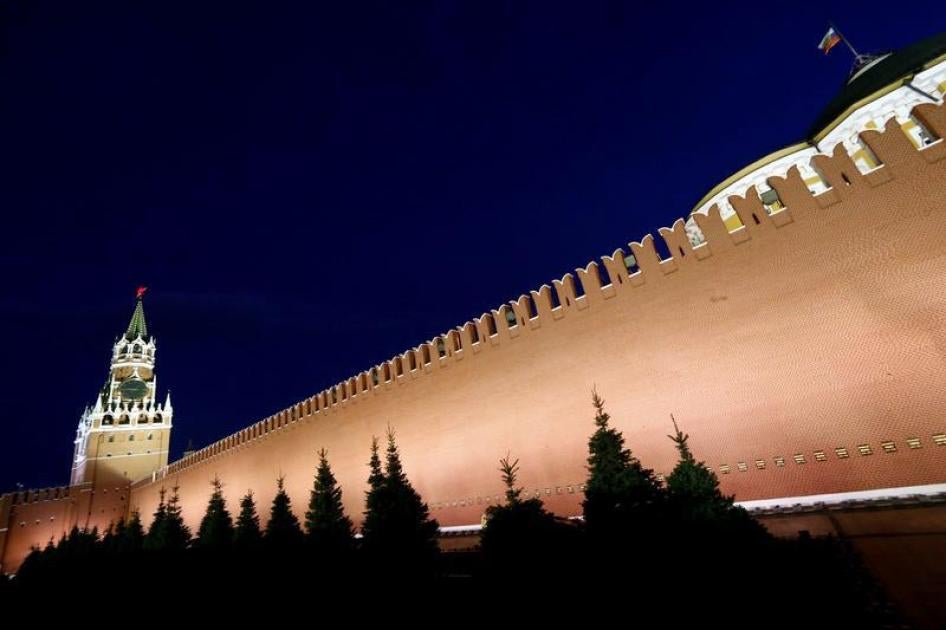(Beirut) – The Russian government appears to be breaking its promises to investigate civilian casualties from airstrikes in Syria, Human Rights Watch said today.
In a letter sent to Foreign Minister Sergey Lavrov on November 22, 2016, Human Rights Watch detailed 16 Syrian-Russian aerial attacks that appear to have deliberately or indiscriminately hit civilians and civilian infrastructure including bakeries, markets, and humanitarian objects between September 30, 2015 and September 19, 2016. The attacks killed a total of 141 civilians. Russia had made a commitment to investigate attacks in Syria “leading to significant civilian casualties” and to report the findings to the International Syrian Support Group Ceasefire Task Force and the UN Security Council.
“Despite the ceasefire and a significant reduction in aerial attacks in Syria, there have been new attacks on opposition-held territory that are killing and injuring civilians,” said Lama Fakih, deputy Middle East director at Human Rights Watch. “The civilians maimed in Syrian-Russian aerial attacks, and the relatives of those killed are still waiting for answers and compensation for their losses.”
In the November letter, Human Rights Watch asked about investigations into Russian-Syrian coalition aerial attacks in Syria that reportedly killed and injured civilians. The Russian authorities do not appear to have made any public statement concerning investigations.
The Russian government should investigate the 16 airstrikes Human Rights Watch documented, publicly report the findings, and compensate affected families, Human Rights Watch said.
The attacks on opposition-held areas followed the start of Russian-Syrian joint military operations, but the strikes cannot be confirmed as having been committed by Russian forces alone. The evidence compiled is based on phone interviews with witnesses including residents, first responders, and medical personnel, and a review of videos and photographic evidence.
In one case, at about 2 p.m. on December 9, 2015, an aircraft dropped two munitions on shops and vendors while people were shopping for fruit and vegetables, a medical source and a first responder reported. Abdelmo’in, a first responder from a Syrian Civil Defense unit that conducts search and rescue both in Kafr Batna and Hamouriyeh, said he heard planes overhead and arrived at the scene shortly after the attack.
Abdelmo’in told Human Rights Watch that at least 34 people were killed in the attack. He said that he saw at least 60 injured people at the nearest medical point, including many women and children. Footage posted by the Syrian Civil Defense on YouTube showed rescue workers going through rubble looking for bodies and extinguishing fires. There is no sign of weapons or military equipment in any of the footage.
In recent weeks, US President Donald Trump has indicated that he would consider partnering with Russia in the fight against the Islamic State (also known as ISIS) in Syria. In light of the Syria -Russia coalition’s record of war crimes, any cooperation with Moscow in the fight against ISIS in Syria could make the United Sates complicit in such crimes.
“Russia has a duty to investigate and report the findings on Syrian-Russian strikes that kill or injure civilians,” Fakih said. “For its part, the United States should take all the precautions needed to ensure that any joint operations do not contribute to civilian casualties.”







